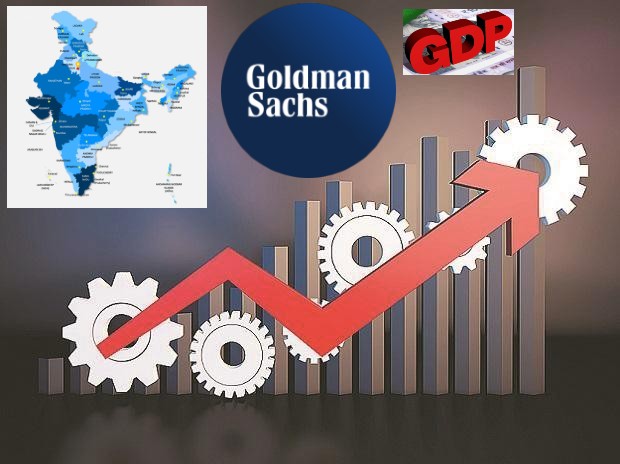New Delhi, NFAPost: Fuelling further growth of growth of Indian economy, global brockerage firm Goldman Sachs stated that Indian GDP will grow at 8.5% in 2021-22, and the rate will accelerate further to 9.8% in 2022-23.
The positive signals are highlighted when Modi-led Indian government is going through various internal problems like low employment creation, rising fuel rate and growing inflation.
Also, it is intersting to find that the GDP had contracted by 7.3% in the pandemic-hit FY21, and is widely expected to grow at a faster pace due to the base effect in 2021-22. The Reserve Bank of India (RBI) expects a 9.5% growth in 2021-22, and the same to slow down to 7.8% as things normalise.
“We expect consumption to be an important contributor to growth in 2022, as the economy fully re-opens driven by a notable improvement in the virus situation and adequate progress on vaccination,” Goldman Sachs said in a report.
It expects government capital spending to continue, nascent signs of a private corporate capital expenditure (capex) recovery, and a revival in housing investment. The American brokerage pegged the FY23 growth number to be higher, making its analysts one among the few to expect an acceleration in growth even after the base effect wears out.
Earlier in the day, analysts at British brokerage Barclays said FY22 growth will come at 10%, and the same will slow down to 7.8% in FY23.
Goldman Sachs said that as the growth catches up, the RBI will begin its policy normalisation, and expected cumulative rate hikes of 0.75% in 2022. The central bank is currently in the second stage of the four-stage policy normalisation process, which began with ‘less dovish’ comments from the rate setting panel and will end with repo rate hikes, it added.
Concurring with the same view, Barclays also said the policy is already shifting to being less accommodative and there will be a hike in reverse repo rate at the upcoming policy review in December, which will be followed with rate hikes next year.
Barclays said Indian policymakers have been focused on managing growth risks for the past three years, stressing that the downturn had started before the onset of the pandemic itself, and added that the focus will now shift to managing financial stability concerns.
Inflation will decline in the second half of next year after being elevated and may result in an appropriate action by the RBI, it said. Analysts at Goldman Sachs expect the headline consumer price inflation to rise to 5.8% in 2022 from 5.2% in 2021.





